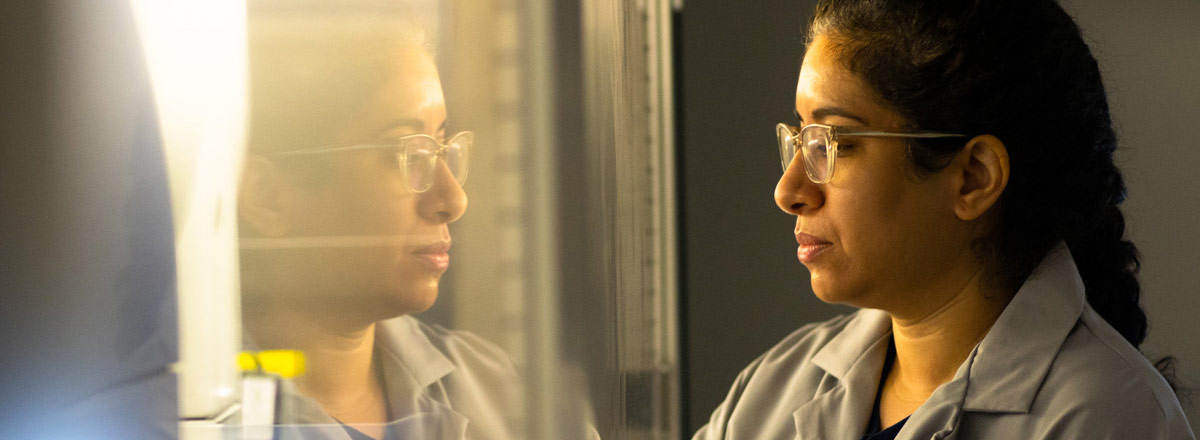About the Symposium
The Rising Stars Symposium is an annual recruitment event that showcases the biomedical research of exceptional postdoctoral candidates from across the country. Candidates are selected based on academic achievements, research scholarship, and the alignment of their research interests with those of Sanford Burnham Prebys laboratories.
If you have any questions, please contact RSS@sbpdiscovery.org.
RSVP
Register to attend the 2025 Rising Stars Symposium
Schedule
| April 30 – Day 1 | |
|---|---|
| 9:15 – 9:20am | Welcoming Remarks David A. Brenner, MD President and Chief Executive Officer Donald Bren Chief Executive Chair |
| 9:20 – 9:25am | Keynote Introduction James Marchant, PhD Postdoctoral Fellow Colas Lab |
| 9:25 – 10:30am | Keynote Address Mark Mercola, PhD Professor, Department of Medicine and Cardiovascular Institute Stanford University School of Medicine |
| 10:30 – 10:45am | Coffee Break |
| 10:50 – 11:50am | Morning Session Moderator: Alexandra Houser 10:50 – Paola E. Peña García 11:10 – Jaquesta Adams 11:30 – Michelle Thomas |
| 11:50am – 12:05pm | Coffee Break |
| 12:10 – 12:30pm | Afternoon Session Moderator: Alexandra Houser 12:10 – Janice Reynaga |
| 12:30 – 12:45pm | Day 1 Closing Remarks Lukas Chavez, PhD Associate Professor, Cancer Genome and Epigenetics Program Member, Center for Data Sciences |
| 1 – 2:15pm | Lunch Student and Postdoc Leaders |
| 2:30 – 3:45pm | 1:1 Faculty Meetings |
| 3:45 – 5pm | Postdoctoral Programs and Leadership Development Nisha Cavanaugh Associate Director, Career Development and Postdoctoral Programs |
| May 1 – Day 2 | |
| 9:30 – 9:45am | Day 1 Recap and Day 2 Introduction Sanju Sinha, PhD Assistant Professor, Cancer Metabolism and Microenvironment Program Member, Center for Data Sciences Member, Center for Therapeutics Discovery |
| 9:50 – 10:50am | Morning Session I Moderator: Katya Marchetti 9:50 – Lanette LaComb 10:10 – Danielle Johnson 10:30 – Tracey Porter |
| 10:50 – 11:05am | Coffee Break |
| 11:10 – 11:50am | Morning Session II Moderator: Monica Nicolau 11:10 – Sarah Brashear 11:30 – Ariell Smith |
| 11:50am – 12:00pm | Day 2 Closing Remarks Lauren Mitchell Director, Workforce Engagement and Belonging |
| 12:15 – 1:30pm | Lunch Reception |
| 1:30 – 2:45pm | 1:1 Faculty Meetings |
We invite applications from late-stage doctoral students and early-stage postdoctoral researchers who will be seeking a postdoctoral position between now and May 2026.
Over the course of three days, selected candidates will:
- Present their research in a 20-minute talk
- Participate in career and leadership development sessions
- Tour laboratories and core facilities
- Attend a networking reception with students, postdocs, and faculty
- Meet with faculty to explore postdoctoral opportunities at the Institute
Travel, lodging, and meals will be covered by Sanford Burnham Prebys. The symposium is hosted by the NCI-designated Cancer Center and the Workforce Engagement and Belonging Council. We strongly encourage scholars from underrepresented groups in the sciences to apply, as we are committed to increasing the visibility of diverse future leaders in biomedical research.
Speakers
Keynote Speaker
Professor of Cardiovascular Medicine
Department of Medicine and Cardiovascular Institute
Stanford University School of Medicine
“Developing Heart Failure Drugs that Target Mechanisms Rather than Symptoms of Disease”
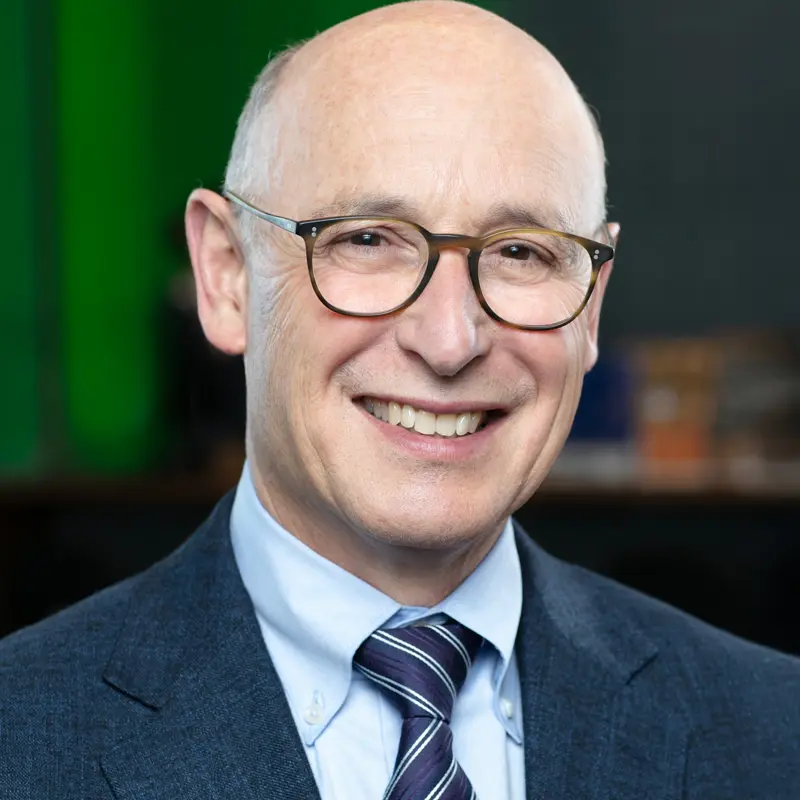
Mark Mercola, PhD, is the Joan and Sanford I. Weill Scholar and Professor of Cardiovascular Medicine in the Division of Cardiovascular Medicine and in the Department of Chemical and Systems Biology. Dr. Mercola has done foundational work in establishing human induced pluripotent stem cell (hiPSC) models of heart disease including the discovery of molecules that induce the heart during early development. He has used these models, together with small and large animal models, to identify and validate therapeutic targets and candidates (biologics and small molecule) to treat heart disease. He is a recipient of an NIH MERIT award has led projects funded by the National Institutes of Health, the California Institute for Regenerative Medicine, the Fondation Leducq, and pharmaceutical company-academic collaborations. He serves on the boards of multiple academic centers and biotech companies.
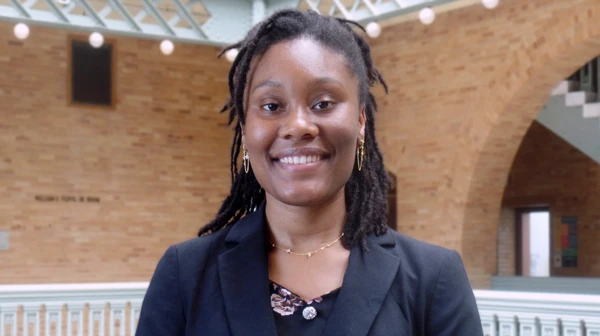
Jaquesta Adams
PhD candidate
UC Berkeley
Landry Lab
“High-throughput evolution of near-infrared oxytocin nanosensors enables oxytocin imaging in mice and prairie voles”
Oxytocin signaling is central to social neuroscience. We still have an incomplete understanding of how oxytocin supports complex social behaviors across species in health and disease. Using single-walled carbon nanotubes and single-stranded DNA, Adams develops near-infrared fluorescent synthetic probes to image oxytocinergic communication with high spatiotemporal resolution. These tools can capture synaptic-scale neurochemical release ex vivo.
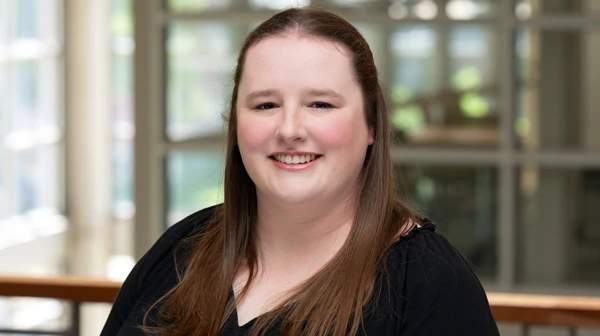
Sarah Brashear
PhD candidate
UC Davis
Smith Lab
“Skeletal Muscle Adaptations to Exercise in Patients with Chronic Kidney Disease”
Brashear’s research investigates skeletal muscle function, collagen architecture and resident muscle cells in Duchenne muscular dystrophy and chronic kidney disease. Both diseases have been shown to lead to increased skeletal muscle fibrosis. Brashear’s goal is to mitigate fibrosis and improve muscle function using therapeutics and exercise, ideally leading to improved quality of life.
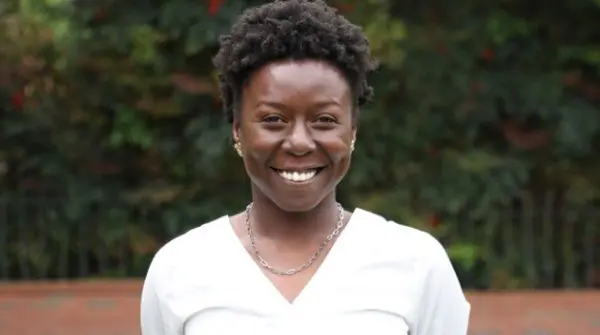
Michell Carroll
PhD candidate
University of North Carolina at Chapel Hill Eshleman School of Pharmacy
Pattenden Lab
“A rapid and simple method for extraction of high-quality chromatin from fixed tissues”
Thomas is dedicated to developing innovative methods for extracting high-quality chromatin from fixed tissues, enabling the exploration of chromatin changes in both normal and diseased states.
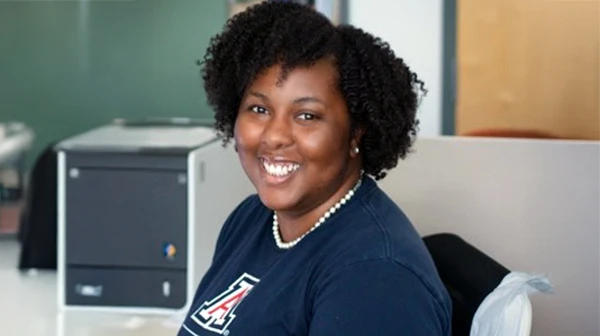
Danielle Johnson
PhD candidate
University of Arizona
Jewett Lab
“Expanding the Utility of Triazabutadiene Chemical Probes to Target and Elucidate Protein Dynamics through 19F NMR”
Johnson investigates the application of Triazabutadiene chemical probes for targeted mitochondrial delivery of fluorinated small molecules. Her research uses 19F NMR spectroscopy to study protein dynamics and mitochondrial dysfunction in disease progression. She has experience in chemical probe design, chromatographic purification and biophysical characterization. Johnson is the president of Grad C.A.F.E., an organization fostering professional development for underrepresented graduate students.
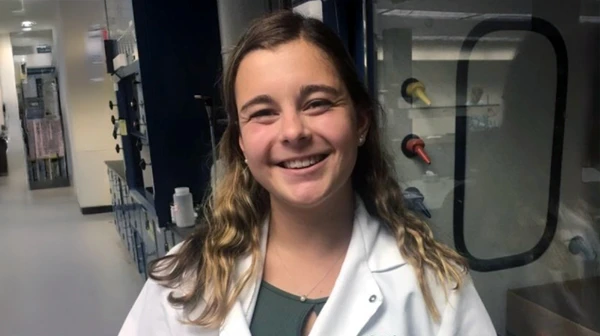
Lanette LaComb
PhD candidate
Albert Einstein College of Medicine
Almo Lab
“Deciphering the Interaction Landscape of Mena via Its EVH1 Module”
LaComb’s research is centered on elucidating the binding landscapes of disease-relevant proteins. Her goal is to identify novel molecular interfaces amenable to therapeutic targeting. LaComb combines classical biochemical and biophysical methodologies, protein synthesis and structural biology to map unique binding epitopes that inform rational inhibitor design. Her work lays the groundwork for next-generation therapeutic strategies.
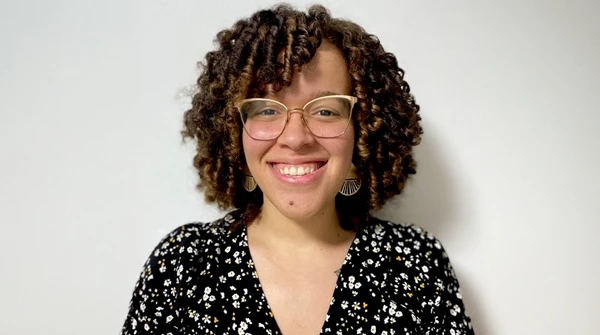
Paola E. Peña García
PhD candidate
University of Vermont
Poynter Lab
“Elucidating How Obesity and Weight Loss Impact the Airway Epithelium in Obese Asthma”
Obese asthmatics often experience more severe and uncontrolled symptoms even when receiving standard treatments. In these patients, weight loss can lead to fewer asthma symptoms. Garcia’s research examines the dual role of adipose tissue in both driving and resolving airway inflammation. She aims to identify therapies that mimic the benefits of weight loss for obese asthmatics.
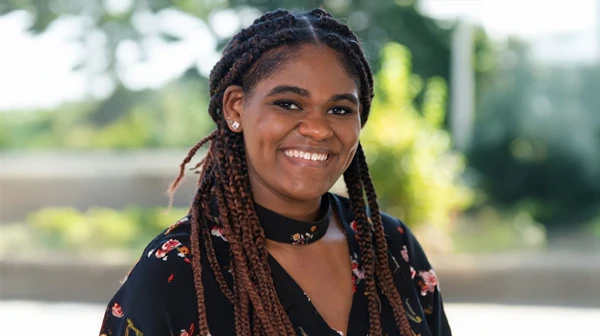
Tracey Porter
PhD candidate
University of Notre Dame
Wingert Lab
“Elucidating the role of apolipoprotein L1 in zebrafish pronephros development”
Porter focuses on understanding the genetic mechanisms determining kidney development and disease with the zebrafish as a model organism. Her research aims to discern the role of apol1 in zebrafish pronephros (kidney) development, particularly in the podocytes. This research could further our understanding of genetic contributors to kidney developmental abnormalities and disease.
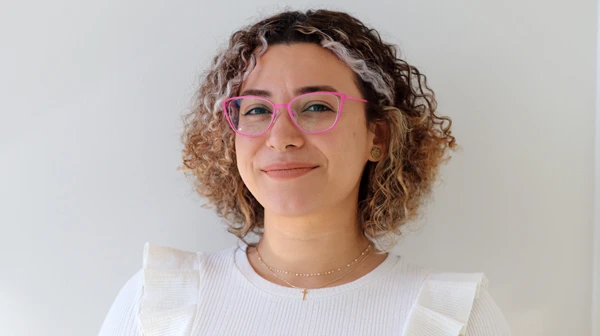
Janice Reynaga
PhD candidate
University of Pennsylvania
“Domain focused screen identifies MEAF6 as a vulnerability in acute myeloid leukemia”
Reynaga’s most recent work focuses on epigenetic regulators of leukemia progression. She specializes in CRISPR-Cas9 screens and cell assay development. She also has translational cancer research and mass spectrometry-based proteomics experience. Reynaga excels at managing multiple projects and collaborating across disciplines. She is passionate about mentoring and plans to pursue an academic career focused on teaching and developing future scientists.
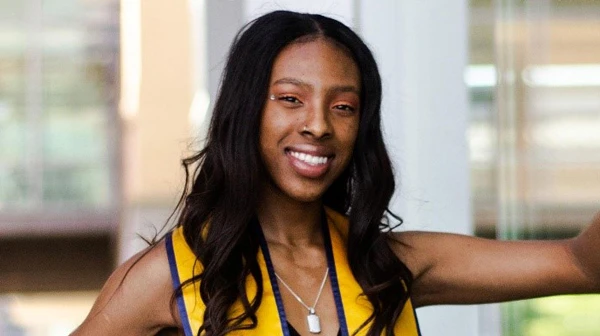
Ariell Smith
PhD candidate
UC Merced
“The effects of elastic and viscoelastic extracellular matrices on lung epithelial cell mechanobiology”
Mechanical properties of extracellular matrices (ECM) regulate cellular processes such as morphogenesis, wound healing and pathophysiology progression. Recently, it has become evident that cells differentiate between elastic and viscoelastic ECMs, altering their morphology, migration rate, contractility and reprogramming their biology. Smith is investigating the effects of elastic and viscoelastic ECMs on lung epithelial cell mechanobiology.
Postdoctoral Training at Sanford Burnham Prebys
Virtual Information Session
Register for our virtual information session for prospective applicants
February 10, 2025 – 11:00 am PST
Apply
Interested scholars must submit an application by February 21, 2025, at 11:59 p.m. PST, and provide an abstract, CV, and the contact information of a PI, research advisor, or mentor who can serve as a reference.
Eligibility is limited to U.S. citizens and permanent residents.

